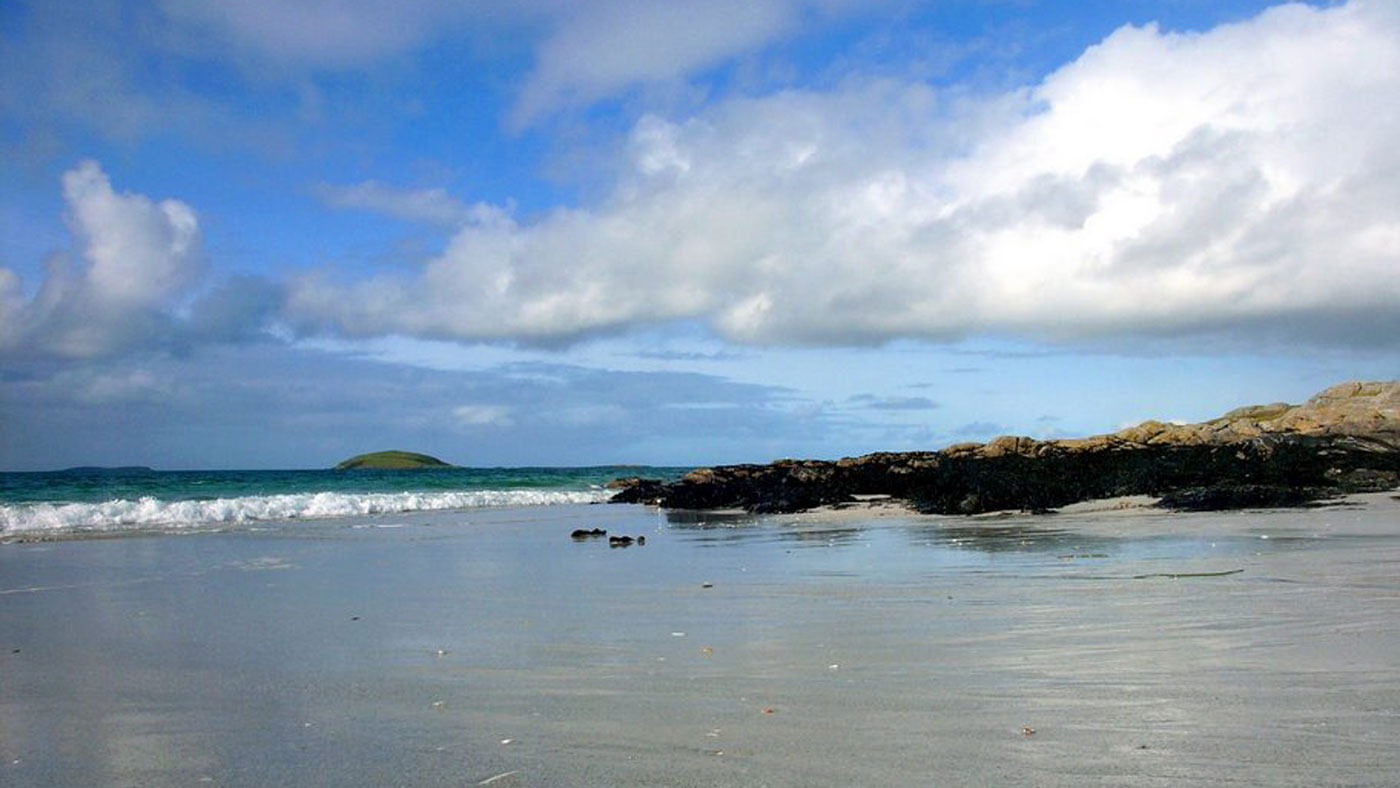The corner of the UK that was ‘perfectly primed’ for coronavirus
Scottish islands reap benefits of early lockdown and resilient residents

A free daily email with the biggest news stories of the day – and the best features from TheWeek.com
You are now subscribed
Your newsletter sign-up was successful
The UK is one of the nations hit hardest by the coronavirus outbreak, with 138,000 confirmed infections and nearly 19,000 related deaths – the sixth and fifth highest totals in the world respectively.
Every corner of the country has been exposed to the virus and almost every community has experienced coronavirus deaths.
But there is one exception. Scotland’s Outer Hebrides has emerged as the only area of the UK where no Covid-19 fatalities have been recorded.
The Week
Escape your echo chamber. Get the facts behind the news, plus analysis from multiple perspectives.

Sign up for The Week's Free Newsletters
From our morning news briefing to a weekly Good News Newsletter, get the best of The Week delivered directly to your inbox.
From our morning news briefing to a weekly Good News Newsletter, get the best of The Week delivered directly to your inbox.
Where is the Outer Hebrides?
Situated on Europe’s Atlantic edge, the Scottish Western Isles of the Outer Hebrides are a cluster of interconnected islands known for their unique natural features and wildlife.
“The chief islands of the crescent-shaped chain of the Outer Hebrides are Lewis and Harris, North Uist, Benbecula, South Uist, and Barra. St Kilda lies some 40 miles (65km) northwest of the main chain,” says Encyclopaedia Britannica.
The Western Isles, an archipelago that stretches from Lewis and Harris through the Uists and Benbecula down to Barra and Mingulay at its southern tip, have a population of nearly 27,000.
A free daily email with the biggest news stories of the day – and the best features from TheWeek.com
How has it controlled the coronavirus?
Of the 27,000 Western Islanders, so far only six people are known to have contracted coronavirus. Official data confirmed this week show that there have been no new cases of coronavirus in the Western Isles for 13 days.
This suggests that the early decision taken to restrict all non-essential ferry travel and issue pleas for visitors to stay away might have paid off.
CalMac and NorthLink, the main ferry operators, stopped non-residents using their services on 19 March, before the UK had introduced a national lockdown. On 27 March, the two companies introduced a reduced emergency timetable.
Since then, only essential workers and lorry drivers have been allowed to travel.
“On Easter Sunday this year, only 146 people used Hebridean ferries, compared with 12,000 people on Easter Sunday last year. CalMac’s traffic has fallen by 95%,” reports The Guardian.
However, Alasdair Allan, the SNP Member of the Scottish Parliament for the Western Isles, praised the islanders for quickly embracing the lockdown.
“People on the islands were instantly aware of how dangerous that was because they knew their health services couldn’t cope with that situation,” he told the paper. “There was a high degree of compliance despite the fact that the effects economically are very precarious, for areas with a seasonal economy.”
But he warned that there may be more cases on the island that have gone undetected.
Gordon Jamieson, chief executive of NHS Western Isles, said testing will be greatly increased with a new machine that is expected to become operational on Monday.
The new equipment will provide capacity to test for the virus more widely among key workers and in the community. “I can fight it much better that way,” Jamieson said.
“I don’t think anybody here is complacent about the possibility that we may just be at an early stage here. We might just be one of the last places in Europe to be affected. I’m hoping with more testing in the few days, we will get a complete picture of that,” Jamieson added.
ITV News’s Scotland correspondent Peter Smith writes that the mindset of residents has also helped them combat the pandemic quickly and without complaint.
“These are communities that know how to cope when supplies don’t arrive on time, when harsh winters cut them off from the mainland for weeks, and where looking out for neighbours isn’t a novelty,” Smith says. “Being resilient is just a way of life in the Hebrides.”
–––––––––––––––––––––––––––––––For a round-up of the most important stories from around the world - and a concise, refreshing and balanced take on the week’s news agenda - try The Week magazine. Start your trial subscription today –––––––––––––––––––––––––––––––
How have other remote areas of the UK fared?
The Scottish islands of Orkney and Shetland have been hit far harder by the outbreak.
Data from the National Records of Scotland shows that Shetland has had six coronavirus deaths, a rate of 2.6 people per 10,000 population, and 52 confirmed infections.
Susan Bowie, a GP in the village of Hillswick in northwest Shetland, said her community voluntarily locked itself down earlier than other parts of Scotland.
“People have been amazing at self-isolating, and they went into self-isolation at least two weeks before the rest of the UK,” she told the Guardian. Her neighbours “keep a lot of full freezers. We always have quite a lot in the larder.”
Orkney has suffered two coronavirus deaths, a rate of 0.9 per 10,000, and has had six confirmed infections.
Scotland’s Highland region has had 50 deaths, at a rate of 1.6 per 10,000. The death rate in Grampian, which includes the Cairngorms, Speyside and Aberdeen, is 1.5 per 10,000.
By way of comparison, the death rate in Greater Glasgow and Clyde, where the population is much more densely packed together, is at 4.4 per 10,000. It has had 513 deaths so far.